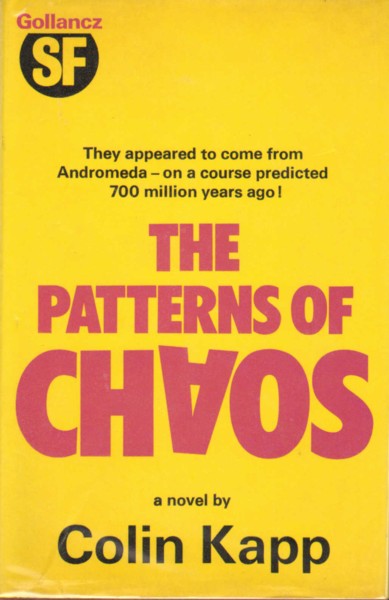This science fiction novel was a book club selection. It's nominally a space opera, but it covers a lot more ground than that label would suggest and actually has quite a high idea-to-page ratio, which is always something I admire in SF.
The story opens in media res with the main character, Bron, trying to move through a city that's under orbital bombardment. We soon learn that Bron is a secret agent. He's not alone, but mentally linked to a team of handlers located on a distant outpost who are connected to him at all times. Bron is, in effect, what he refers to later in the book as the meat component of a geshtalt entity.
Bron has a problem at the beginning of the book in that he lost his memory in a concussive blast a few moments before the book starts, and must now play serious catch-up. Bron's mission is to infiltrate the group known (rather lamely) as The Destroyers, a sort of free-wheeling mercenary group apparently bent on, you guessed it, destruction. But luckily this situation is not as simple as it seems. When the planet Bron just recently vacated is blown up, Bron discovers that the Hellburner missile that did the job was not actually launched by the Destroyers, but had been travelling at sub-light speeds from a distant galaxy for the last million years. In other words, it was launched an impossibly long time ago, far, far away. The plot really thickens when we learn that Bron himself was apparently the target.
What follows are space battles, interpersonal conflicts, crossing and double crossing, power coups, an intergalactic journey, a creepy (and very stealable!) sign of the existence of alternate universes, the discovery of a method of predicting the future by reading the patterns in chaos (futuristic extispicy?) and a bunch of liquid geese.
The Patterns of Chaos is not top-notch literature and most of the characters fall pretty flat, but it does have some nice descriptive writing (space battles compared to blossoming flowers) and is rich with ideas and concepts to try to wrap your head around, which is exactly what I want an SF novel to have. And all this is a pretty compact 187 pages. If you like Science Fiction for the far out stuff, this book is definitely worth checking out.

